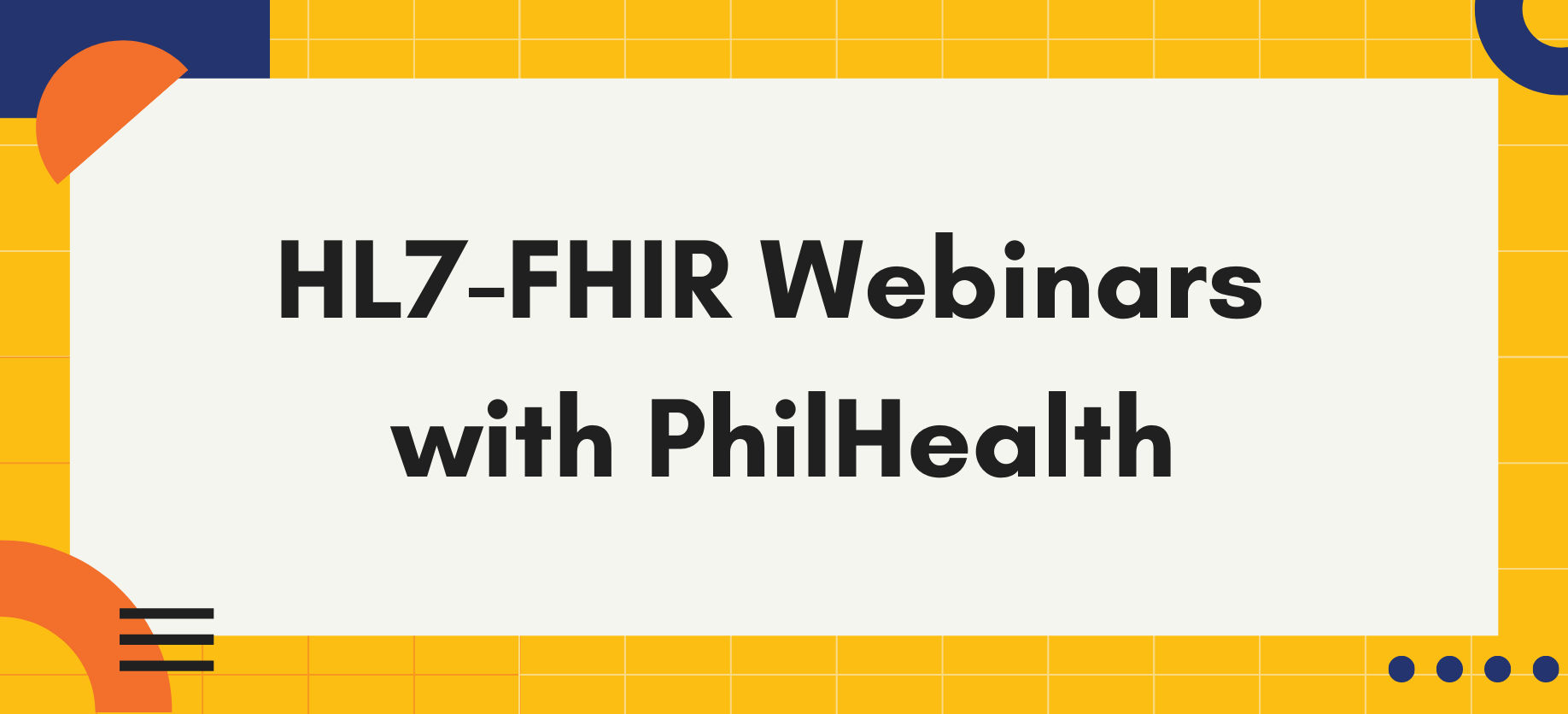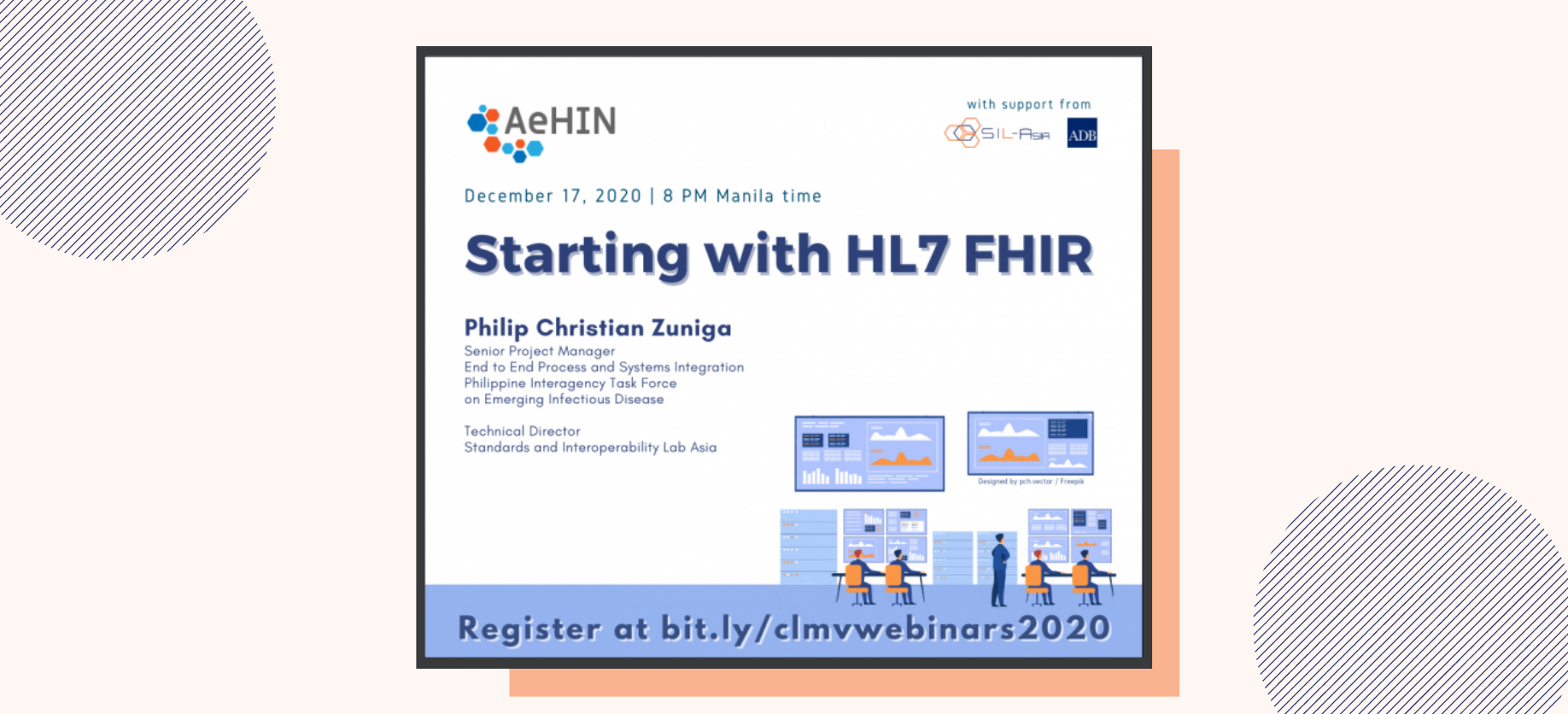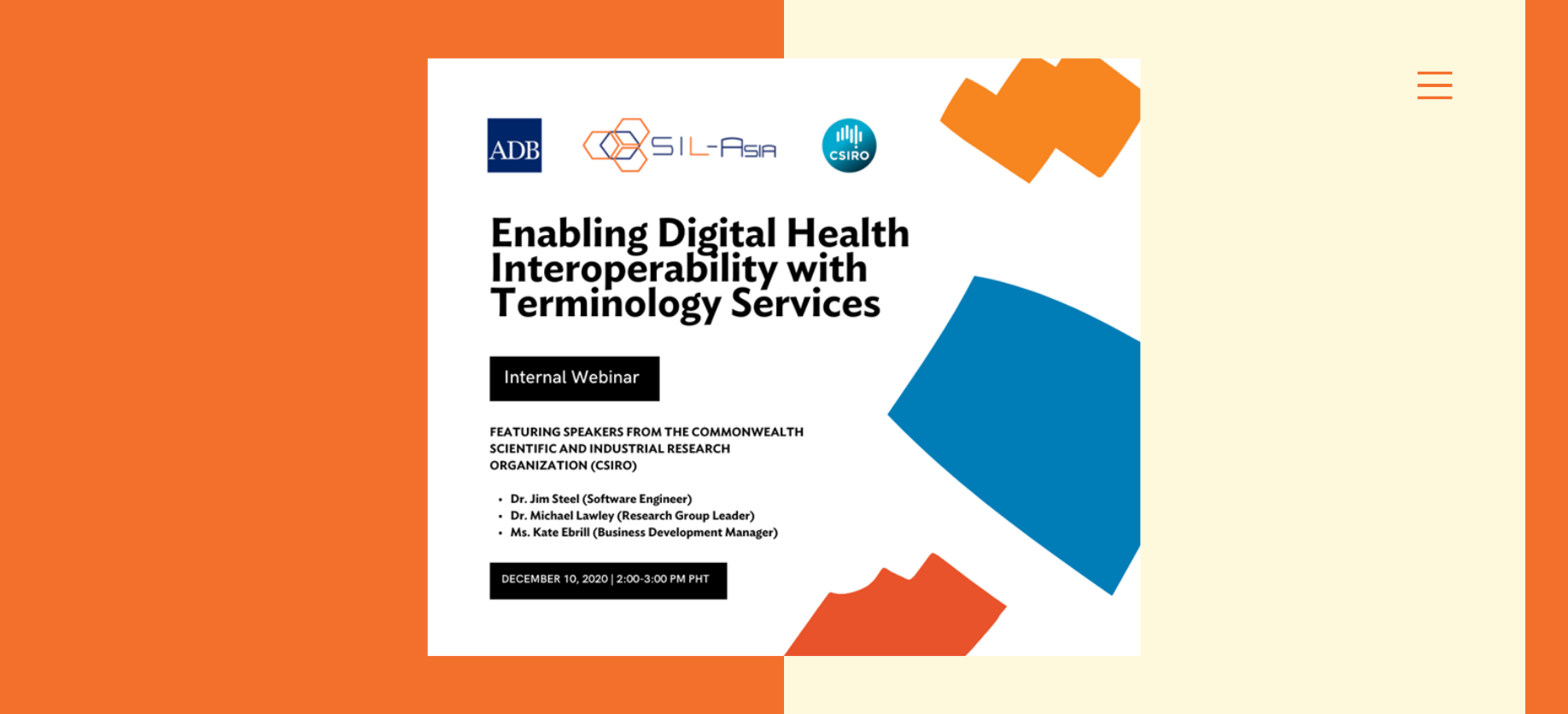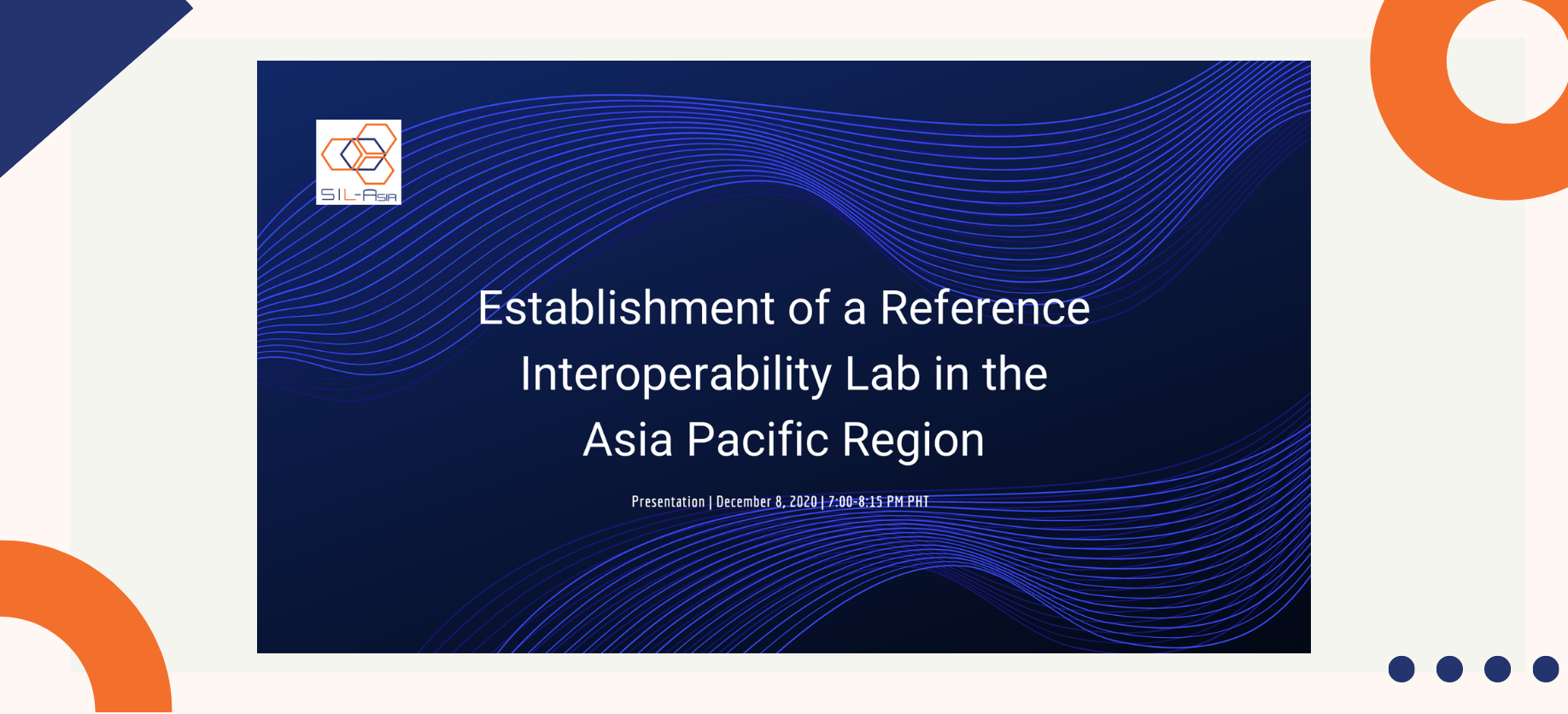In the Philippines, the COVID-19 Inter-Agency Task Force on Emerging Infectious Diseases (IATF), precisely the information and communications technology sub-working group (ICT SWG) on data governance, is working with the Standards and Interoperability Lab-Aisa through the support of the Asian Development Bank (ADB) for the end-to-end process and systems integration of various information systems in the COVID-19 ICT ecosystem.
As part of the project management team in the IATF ICT SWG on Data Governance, SIL-Asia has taken a leadership role to ensure that integration is fully delivered. Overall, SIL-Asia is currently driving the integration of information systems to support COVID-19 response initiatives such as surveillance, testing, contact tracing, and clinical care. Since May 2020, SIL-Asia has endorsed and used the Health Level Seven International – Fast Healthcare Interoperability Resources (HL7-FHIR) standard in systems integration, deployed integration tools, and facilitated interoperability tests.
Part of facilitating interoperability tests is also developing the capacities of various laboratories, hospital information system implementers, and other groups in using standards. On May 19 and 22, 2020, SIL-Asia organized HL7-FHIR introductory webinars for the Philippine Health Insurance Corporation (PhilHealth). The webinars discussed an overview of HL7-FHIR, including modeling of use cases and CRUD (create, read, update, and delete) operations.
For more information, SIL-Asia’s FHIR video tutorials are available here. SIL-Asia’s FHIR server may also be accessed for testing purposes.
The concept for the Standards and Interoperability Lab – Asia was first conceived at the Regional Interoperability Workshop organized by AeHIN in Manila last August 2015 at the sidelines of the Global Health Research Forum. The regional lab was designed to serve as a template of labs in each country that will later form into the Community of Interoperability Labs (COIL).






